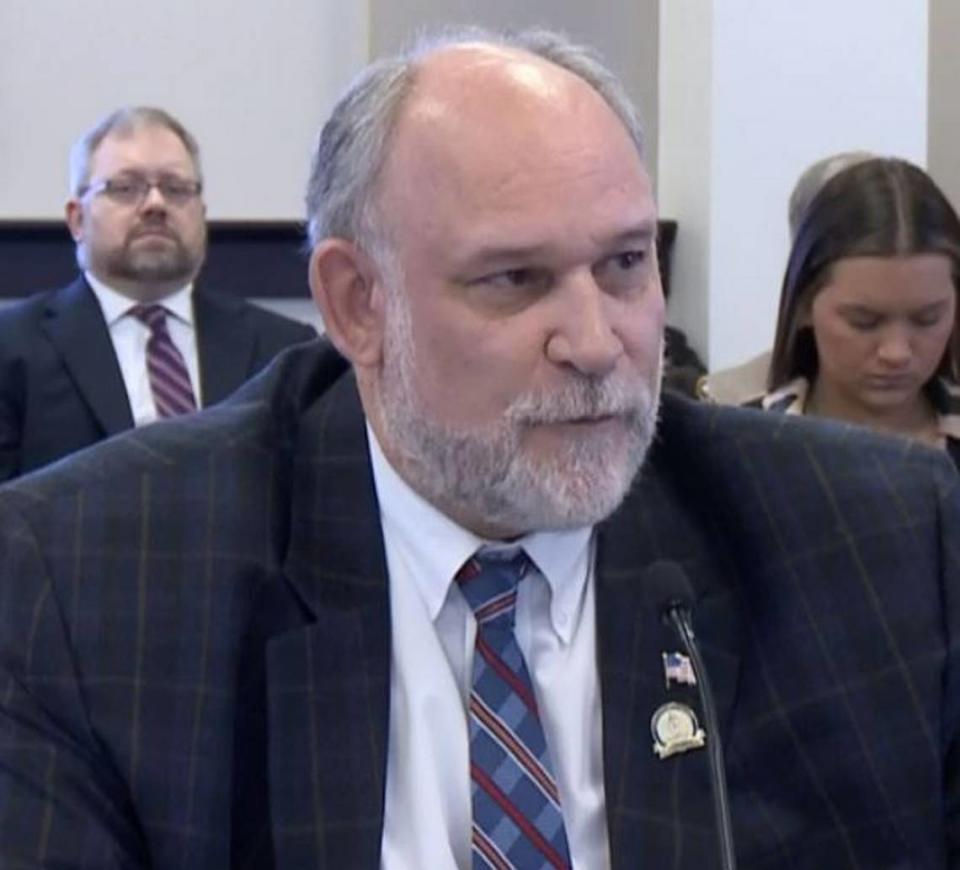More Kentucky teens charged with serious felonies involving guns, like robbery or assault, could be prosecuted harsher as adults in circuit court under a bill headed to the state Senate.
Senate Bill 20, which was approved Thursday by a Senate committee, would reverse a criminal-justice reform that Kentucky adopted just three years ago in order to show juvenile offenders some leniency.
In 2021, the legislature ended the automatic transfer of youths from juvenile court to circuit court in certain criminal cases. Judges now have to hold a hearing to determine, based on the evidence, whether a transfer is appropriate. Once in circuit court, teens are classified as “youthful offenders” and can face the same penalties an adult would, including prison.
The national trend of automatically transferring youths to different courts to be prosecuted as adults for serious felonies started in the 1990s. Subsequent studies found that automatic transfers did little to deter juvenile crime, and in fact, the practice frequently stigmatizes youths for life and exposes them to hardened adult criminals.
But a rise in gun-related violent crime involving teens justifies a more serious response, the sponsor of SB 20, Sen. Matthew Deneen, R-Elizabethtown, said Thursday.

Many victims of teen shootings are themselves other teens, who either are killed or who spend the rest of their lives coping with physical injuries and trauma, Deneen told the Senate Committee on Veterans, Military Affairs and Public Protection.
“It is our responsibility, I believe, to draw a line in the sand and say for these types of crimes, these adult crimes, that the punishment should be fitting of the crime,” Deneen said.
One of the senators who objected Thursday was Republican Whitney Westerfield of Fruit Hill.
Westerfield, who helped change the law three years ago, said an automatic transfer to circuit court would not let judges use their own discretion in cases and consider different factors, such as a youth’s personal history, possible intellectual disabilities and whether a gun offense was a property crime or a crime that caused physical harm.
“I find this (bill) repugnant,” Westerfield said. “Not poorly intended. I don’t question the intent at all.”
Sign up for our Bluegrass Politics Newsletter
A must-read newsletter for political junkies across the Bluegrass State with reporting and analysis from the Lexington Herald-Leader. Never miss a story! Sign up for our Bluegrass Politics newsletter to connect with our reporting team and get behind-the-scenes insights, plus previews of the biggest stories.
There also was some discussion among members of the committee as to who else should be held accountable when teenagers roam the streets with guns.
In many cases, they said, parents seem to have disappeared from their children’s lives. Also, they said, people too often leave their guns in their vehicles outside, where they are easy targets for theft.
Sen. Karen Berg, D-Louisville, said the Senate bill seems like a clumsy attempt to punish youths for living in a society that’s awash in guns without doing anything to curb their access to guns.
Senate Bill 56, which would require safe and secure storage of firearms by Kentucky gun owners, was assigned to the same Senate committee more than a month ago, but it hasn’t budged.
“To say simply that we’re going to throw up our hands and there’s nothing that we can do but put these kids away for the rest of their lives … you are guaranteeing that these kids spend longer in our incarceration system,” Berg said. “And they do not come out better. They come out worse.”
Among its sections, the Senate bill would send cases from juvenile to circuit court for defendants ages 15 to 17 if a district court judge found that a firearm was used during the commission of a Class A, B or C felony. These include the most serious violent crimes, such as homicide, rape, assault, robbery and kidnapping.
If convicted in circuit court, the teen would face the same penalties as an adult, except if they are sentenced to prison, they would serve their time in a juvenile facility until they turn 18, at which point they move to an adult facility.
Under an amended version of the bill approved Thursday, a teen’s case later could return to juvenile court if prosecutors determine that is in the best interest of the public and the child. Deneen said he made that change at the request of his county attorney in Hardin County.
Also, the bill would expand Kentucky’s violent offender statute to include attempted murder — a proposal found in several different pieces of legislation this winter — as well as several serious felonies involving firearms: first-degree burglary, second-degree assault and first-degree wanton endangerment when a gun is fired. In these cases, at least 50% of a sentence would have to be served before parole eligibility could be considered.
Finally, the bill would elevate the crime of first-degree wanton endangerment from a Class D felony, bringing up to five years in prison, to a Class C felony, bringing up to 10 years in prison, if the discharge of a firearm is involved.

Amanda Smith is a dedicated U.S. correspondent with a passion for uncovering the stories that shape the nation. With a background in political science, she provides in-depth analysis and insightful commentary on domestic affairs, ensuring readers are well-informed about the latest developments across the United States.



/cdn.vox-cdn.com/uploads/chorus_asset/file/25449825/65cf71ee2368ff61aaf13de7_1.jpg)



